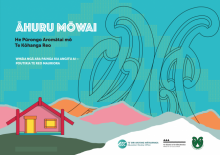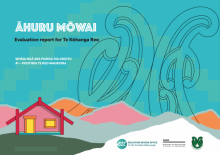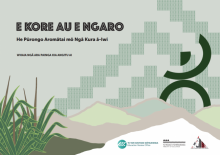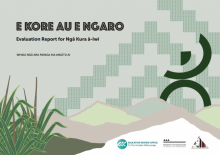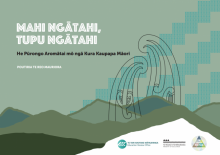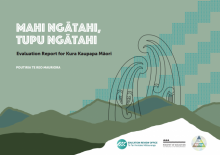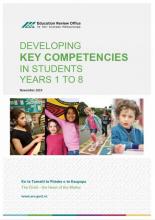Āhuru Mōwai, He Pūrongo Aromātai mō Te Kōhanga Reo
Ko tā te pūrongo nei, he whakatakoto i ngā whakaaro huritao o ngā Kōhanga Reo mō tō rātou ake huarahi mātauranga. Kua kapohia atu ō rātou wawata ngātahi ki te whakarāpopototanga o ngā āhuatanga i whakaraupapahia ai ki te Whanaungatanga, te Rautaki, ngā Tikanga Māori, te Whakarauora i te Reo Māori, ngā Kaumātua, te Ako: Te Whakaako me te Ako, me te Ārahitanga.
